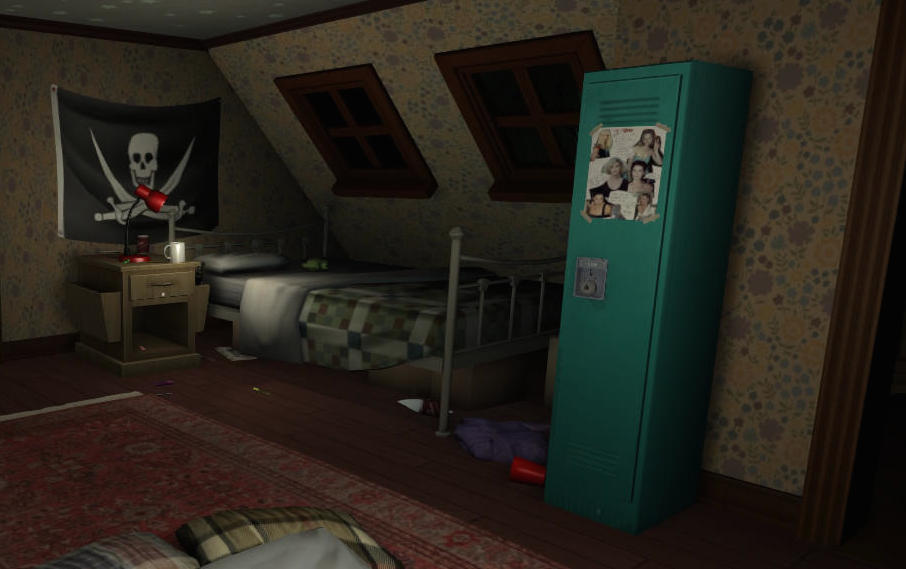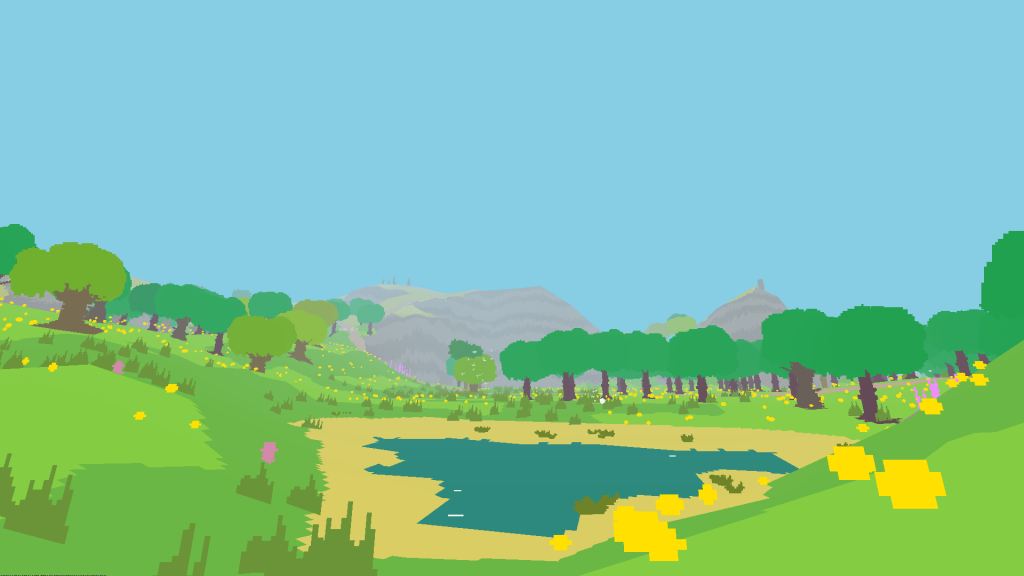In most critical discussion of ‘walking simulators’, there’s a set of games constantly referred to as a starting point for discussion of the genre: Games like Dear Esther, Gone Home and Proteus. However, lumping these games together is, in my mind, somewhat unhelpful, because there are some fundamental differences between them.
To me, Gone Home is not a walking simulator. Dear Esther isn’t even a walking simulator. Proteus is a walking simulator.
The difference boils down to the different ways these games are engaging. Gone Home and Dear Esther are both heavily reliant on their narratives, and this gives them a very clear motive to play. You traverse the environment to resolve the narrative. At no point does the player have to ask themselves ‘what should I be doing right now?’ because the game tells them what to do: in Gone Home you want to piece together the story of your disappeared sister, so they stomp around the house looking for clues. In Dear Esther you want to piece together the Island’s mysteries, so you follow the path to get your next monologue.

Proteus is different. There is no narrative, only environment. In my opinion, Proteus does a better job of approaching the ‘notgame’ space much better than anything Tale of Tales has ever come up with.

When playing Proteus, You have to decide what you’re doing because the game doesn’t. As a result, It’s engagement is exploratory. The player of Proteus decides to go climb that mountain for the same reason the player of GTA decides to take a motorcycle careening down the wrong side of the highway; Because It’s an option that exists within the game’s rules and the player wants to.
I believe that this difference is important enough to warrant considering two different types of walking simulators: let us call these Novel Walking Sims (those with a linear narrative that could be told in another medium) and Sandbox Walking Sims (those with a narrative generated by the player, and as a result unique to interactive media).
To be honest, I didn’t enjoy Proteus all that much. Walking Sims, in the strictest sense, lack mechanical depth, and instead rely on other types of depth (usually narrative) to engage the player. Proteus doesn’t have any intrinsic depth at all. This does something interesting however: Classifying a novel walking sim as a game is much easier than classifying a sandbox walking sim as one, because a novel walking sim still has an objective that can or can’t be attained.
Instead of asking whether walking sims are games, perhaps we should be asking what parts of a walking sim make it not-a-game.